On 17th and 18th April, the Institute of Environmental Sciences (CML) at Leiden University hosted an intensive modelling workshop and hackathon for the FutuRaM project.
The primary objective of the workshop was to collaboratively develop an integrated model of the European secondary raw material (SRM) system. The event brought together 18 dedicated members of the project, fostering cohesion and enabling efficient progress towards our common goal.
Day One: Modelling Strategies and Harmonisation
The first day of the workshop was dedicated to in-depth discussions on modelling strategies. The six waste-stream-specific flow charts were presented, laying the foundation for harmonisation efforts. The participants engaged in conversations regarding the presentation of the integrated flow chart, encompassing considerations such as the level of disaggregation, inclusion of feedback loops, and dissipative losses.
Moreover, the workshop facilitated valuable discussions on integrating forecasted changes in waste composition, recovery technology, and background drivers into the quantitative model. To provide decision-makers with actionable data, the FutuRaM scenarios will utilise a combination of backcasting from EU/national targets and forecasting techniques.
The participants agreed on the criticality of developing a maintainable model capable of accommodating new information as it becomes available, considering the inherent uncertainty in future conditions.
Day Two: Hackathon and Collaborative Integration
The second day featured a hackathon that fostered collaboration across the six waste streams. The focus was on developing and integrating models while emphasising interlinkages and overall concepts.
The workshop provided support from experienced modellers to those who were less experienced, promoting knowledge sharing and skill development. Participants worked on developing shared code and interfaces, emphasising the importance of code quality management through internal code reviews, test cases, and debugging.
Embracing the principles of open science, the project aims to release all the final model’s code along with as much data as possible, ensuring transparency and facilitating further development of this knowledge base.
Outcomes and Future Prospects
The two-day workshop at CML in Leiden proved to be an instrumental platform for the FutuRaM project. It not only facilitated progress but also nurtured cohesion and bonding within the modelling team.
The development of an integrated system model quantifying material flows in Europe’s SRM system, along with their environmental and social impacts until 2050, is a highly complex and challenging task.
The model stands as the central deliverable of the FutuRaM project, with the potential to significantly influence decision-making processes in the public and private sectors in the coming decades.
The workshop marked a promising start, demonstrating the team’s commitment and motivation. The team looks forward to continued collaboration and development over the next few years, aiming to produce a robust and valuable tool that enhances understanding of the SRM and CRM systems promoting a more sustainable future.
/Author: Stewart C. McDowall/
